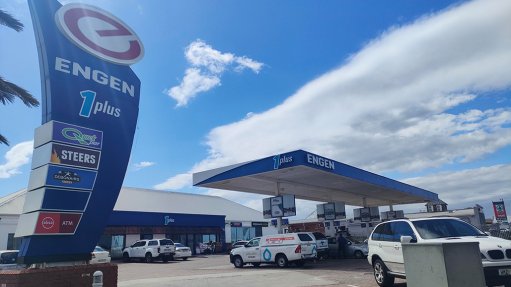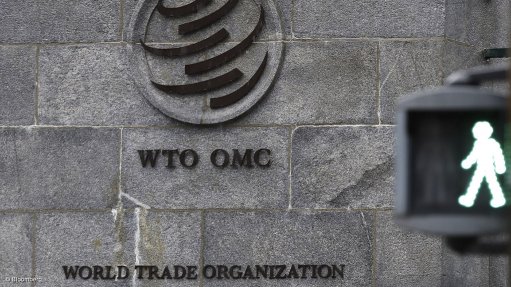EIUG head calls for rethink on SA’s nuclear plan
The head of South Africa’s Energy Intensive User Group (EIUG), which represents Eskom’s largest mining and industrial customers, has called for a full review of the country’s future generation capacity options, including the validity of pursuing a “substantial, expensive and inflexible nuclear programme”.
Writing in the Business Day, EIUG chairperson Mike Rossouw described the current version of the Integrated Resources Plan (IRP), which was published in 2011 and outlines South Africa’s new electricity generation capacity plan for the 20-year period from 2010 to 2030, as “outdated”.
“A review should consider, for example, the scope for new technology innovation in power, the validity of a substantial, expensive and inflexible nuclear programme and alternative fuel options, such as gas,” Rossouw argues.
It has been reported previously that the Department of Energy is likely to conduct a review of the current IRP during 2013, and that there is an intention to increase the role of imported and unconventional gas options into a revised plan.
Rossouw tells Engineering News Online that the review is “overdue”, as there have been material changes in the electricity environment since the IRP was published.
For instance, the IRP’s assumed electricity demand growth is 2.5%, while the expectation currently is for average yearly growth of less than 2% over the coming five years.
The EIUG is not opposed to nuclear as a technology option, but is concerned that the addition of 9 600 MW of new nuclear capacity by 2030 could foreclose other opportunities that are more responsive to changing energy-market dynamics.
“For instance, we need to take a deep dive into the possible impact that the regional gas and shale gas prospects could play in affordably meeting our security of supply objectives,” Rossouw argues.
A large-scale nuclear roll-out could also further exacerbate the surge in Eskom prices, which have already climbed by more than 200% since 2007, from around 20c/kWh to 60c/kWh.
Eskom’s request for a further five yearly increases of 16% between 2013 and 2018, would result in “a huge 540% [increase] over the ten-year period”.
The EIUG believes yearly increases of 10% would be sufficient, particularly if the National Energy Regulator of South Africa insisted on greater cost prudency and operational efficiencies.
Increases that raised the nominal power price to 128c/kWh by 2018 would severely weaken the competitiveness of South Africa’s productive sectors and force energy-intensive businesses to close.
“By way of example, we have seen South Africa lose its place as the world leader in ferrochrome production to China in the past few years,” Rossouw writes.
He also quotes a National Foundry Technology Network report stating that there has been a decline of 13% in the number of foundries in South Africa since 2007.
“It does not appear that affordability has been adequately factored into the current planning and pricing considerations.” For instance, a closure of energy-intensive firms would erode Eskom’s revenue base, placing upward pressure on its costs that would have to be recovered from a shrinking customer base.
“This potential revenue collapse will be compounded by South Africa’s apparent imminent commitment to a substantial and irreversible nuclear build programme that will see Eskom’s costs and tariffs spiral even further beyond 2017.”
In November, Cabinet endorsed Eskom as the designated owner-operator of any new nuclear energy plants in South Africa, following the inaugural meeting of the National Nuclear Energy Executive Coordination Committee (NNEECC), which is chaired by Deputy President Kgalema Motlanthe.
The NNEECC has been established to oversee any future nuclear procurement process, as well as any future build programme.
Cabinet has also endorsed the proposed ‘phased decision-making approach’ for implementation of the nuclear programme, as well as a nuclear communication and stakeholder engagement strategy.
As part of this phased approach, the International Atomic Energy Agency (IAEA) will conduct an integrated nuclear infrastructure review mission to South Africa during February to assess South Africa’s readiness in terms of 19 milestones outlined by the IAEA.
The review follows a domestic self-evaluation report conducted under the aegis of the NNEECC.
Comments
Press Office
Announcements
What's On
Subscribe to improve your user experience...
Option 1 (equivalent of R125 a month):
Receive a weekly copy of Creamer Media's Engineering News & Mining Weekly magazine
(print copy for those in South Africa and e-magazine for those outside of South Africa)
Receive daily email newsletters
Access to full search results
Access archive of magazine back copies
Access to Projects in Progress
Access to ONE Research Report of your choice in PDF format
Option 2 (equivalent of R375 a month):
All benefits from Option 1
PLUS
Access to Creamer Media's Research Channel Africa for ALL Research Reports, in PDF format, on various industrial and mining sectors
including Electricity; Water; Energy Transition; Hydrogen; Roads, Rail and Ports; Coal; Gold; Platinum; Battery Metals; etc.
Already a subscriber?
Forgotten your password?
Receive weekly copy of Creamer Media's Engineering News & Mining Weekly magazine (print copy for those in South Africa and e-magazine for those outside of South Africa)
➕
Recieve daily email newsletters
➕
Access to full search results
➕
Access archive of magazine back copies
➕
Access to Projects in Progress
➕
Access to ONE Research Report of your choice in PDF format
RESEARCH CHANNEL AFRICA
R4500 (equivalent of R375 a month)
SUBSCRIBEAll benefits from Option 1
➕
Access to Creamer Media's Research Channel Africa for ALL Research Reports on various industrial and mining sectors, in PDF format, including on:
Electricity
➕
Water
➕
Energy Transition
➕
Hydrogen
➕
Roads, Rail and Ports
➕
Coal
➕
Gold
➕
Platinum
➕
Battery Metals
➕
etc.
Receive all benefits from Option 1 or Option 2 delivered to numerous people at your company
➕
Multiple User names and Passwords for simultaneous log-ins
➕
Intranet integration access to all in your organisation


















